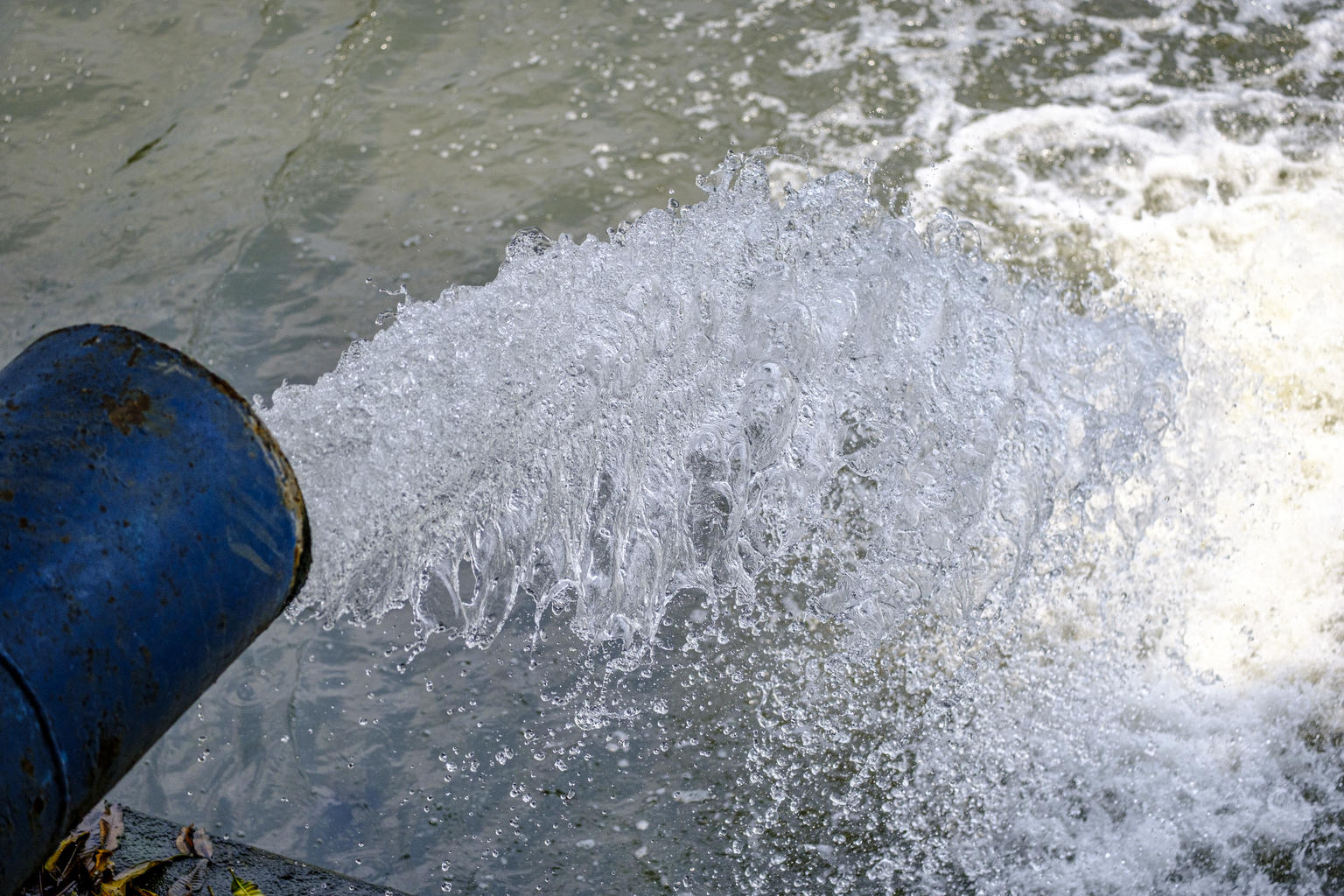Water Quality and Wastewater
As populations grow and natural environments become degraded, ensuring everyone has safe and sufficient water supplies is becoming increasingly challenging. A major part of the solution is to produce less pollution and improve the way we manage wastewater.
A more circular, sustainable economy means reducing contamination of ecosystems, and increasing the treatment, recycling and safe reuse of wastewater as a source of water, energy and nutrients.

The issue explained
Water pollution is increasing throughout the water cycle. Due to population growth, accelerated urbanization and economic development, the quantity of wastewater being generated and its overall pollution load are increasing globally.
Industry and agriculture are often big water polluters. Increased usage of chemical fertilizers and pesticides, and untreated wastewater in irrigation, pollutes groundwater and surface water. Industry in many areas still discharges waste directly into water courses.
Wastewater management is being seriously neglected. Across the world, safely reused wastewater is grossly undervalued as a potentially affordable and sustainable source of water, energy, nutrients and other recoverable materials.
Untreated wastewater in cities is a major issue. In poorer urban areas, a large proportion of wastewater is discharged untreated directly into the closest drainage channel or water body. Household effluent, human waste, toxic chemicals and medical waste are exposed to the air, contaminating the environment in often densely-populated residential zones.

The way forward
Governments must exploit the enormous opportunities in wastewater. Safely managed wastewater is an affordable and sustainable source of water, energy, nutrients and other recoverable materials.
Wastewater can help meet growing demand. There are many treatment processes and operational systems that use wastewater in municipal activities, sustainable agriculture, energy production and industrial development.
Benefits far outweigh the costs of better wastewater management. The positive impacts on water quality and supply by increasing wastewater recycling and safe reuse will drive progress in public health, environmental sustainability and economic development by providing new business opportunities and creating more ‘green’ jobs.
Wastewater can be vital for farmers. Wastewater is a valuable source of both water and nutrient content for crops, contributing to water and food security and livelihood improvements. Improved wastewater management can improve the health of agricultural workers by reducing the risk of pathogen exposure.
Wastewater can be used in ‘industrial symbiosis’. Industry is a major water consumer and wastewater discharger. Many businesses are now using some of their ‘process water’ for cooling or heating, and using rainwater for toilet flushing, irrigation or vehicle washing.
Facts and Figures
- 42% of household wastewater is not treated properly, damaging ecosystems and human health. (UN-Water, 2023)
- Only 27 per cent of industrial wastewater is safely treated (based on limited data from 22 countries). (UN-Water, 2024)
- The untapped potential for wastewater reuse is around 320 billion m3 per year, with the potential to supply more than 10 times the current global desalination capacity. (UNEP, 2023)
- 56% of all the water bodies in the 120 reporting countries in 2023 are in “good ambient water quality”. (UN-Water, 2024)
- By 2030, the health and livelihoods of 4.8 billion people could be at risk if current water quality monitoring is not improved. (UN-Water, 2024)
- Of the 120 countries with water quality data, only 71 have information about groundwater, which is problematic because groundwater often represents the largest share of freshwater in a country. (UN-Water, 2024)
- Wastewater accounts for about 1.57% of global greenhouse gas emissions, just below the climate harm caused by the global aviation industry. (UNEP, 2023)
- Wastewater can generate biogas, heat, and electricity. It can produce about five times more energy than is required for its treatment – enough to provide electricity for around half a billion people per year. (UNEP, 2023)
- Several water-related diseases, including cholera and schistosomiasis, remain widespread across many developing countries, where only a very small fraction (in some cases less than 5%) of domestic and urban wastewater is treated prior to its release into the environment. (UN WWDR, 2017)
- The greatest increases in exposure to pollutants are expected to occur in low- and lower-middle income countries, primarily because of higher population and economic growth in these countries, especially those in Africa (UNEP, 2016), and the lack of wastewater management systems. (UN WWDR, 2017)
- Better lake and groundwater monitoring is an urgent priority. Countries in the lowest income half of the world reported using fewer than 4,500 lake water quality measurements from a global total of nearly 250,000. (UN-Water, 2024)
